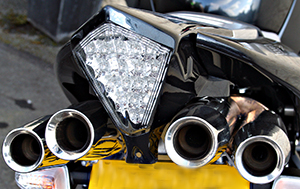 If you have been following the European Commission’s “Type Approval” proposal and now the proposal on Road Worthiness Testing, you will have noted that the European Parliament uses its various committees, which are comprised of elected MEPs, when dealing with such matters.
If you have been following the European Commission’s “Type Approval” proposal and now the proposal on Road Worthiness Testing, you will have noted that the European Parliament uses its various committees, which are comprised of elected MEPs, when dealing with such matters.
The “Type Approval” proposal was dealt with by the Internal Market and Consumer Protection Committee (IMCO) and the RWT is being dealt with by the Transport and Tourism (TRAN) with other committees giving their opinions.
Another committee that has come into our sight recently is the Committee on Petitions (PETI). According to the European Parliament, under the Treaty of Maastricht, “Each EU citizen has the right to submit a petition to the European Parliament in the form of a complaint or a request on an issue which falls within the field of activity of the European Union.”
Petitions are examined by the PETI which will, “Decide on its admissibility and which will be in charge of its treatment in collaboration with the European Commission.”
The PETI is also responsible for relations with the European Ombudsman which ties in with recently submitted petitions and complaints by an individual motorcyclist and supported and promoted by a UK riders’ organisation.
The right to petition was introduced “To provide European citizens and EU residents with a simple way of contacting EU institutions with requests or complaints.” This right is seen as, “An important and often effective way for people to be directly involved in the Parliament’s activity and to have their concerns, proposals or complaints specifically addressed by the Committee members.”
Every right that we riders possess has been hard won and must be protected and not abused nor misused and should not be outside the spirit of the European Citizen’s right to petition, whether as an individual, a company, organisation or association.
At Right To Ride we believe that petitions and/or complaints to the European Ombudsman or letter writing to officials should not be arrogant, nor offensive, nor confrontational, they must be pertinent and relevant in their content.
Petition On Motorcycle Noise
Many petitions are submitted to the European Committee on Petitions and some are controversial for motorcyclists. In one case, in June 2012, a German citizen’s petition was declared as admissible by the PETI committee.
The petitioner called for European regulation, “To reduce noise pollution caused by motorcycles.”
He advocated amongst other things, that to reduce noise there should be, “tough penalties for breaching noise standards, a gradual tightening of these standards in Europe and a ban on riding motorcycles at the weekend on specified roads.”
When the PETI asks the Commission to provide relevant information or give its opinion on the points raised by the petitioner, the Commission (seen by some riders as anti-motorcycling), is expected to give a coherent, informative opinion, based on evidence.
European Committee on Petitions – Click Here
The European Commission Replies
In the case of the response to the petition requesting tough penalties on motorcycles etc by the German petitioner, the Commission replied:
“Reducing noise from motor vehicles has been part of the EU objectives since the 70s when the first type-approval EU legislation on noise from cars and commercial vehicles was adopted.
According to Directive 97/24/EC 2, strict noise limits shall be met by each motorcycle put on the EU market. Therefore, new motorcycles do not emit excessive noise and their noise level is comparable to other means of road transport.
However, the noise problem arises when motorcycles are subsequently tampered, or fitted with bad replacement silencing systems or components that do not comply with the requirements of the directive.
This is why Directive 97/24/EC also includes requirements to prevent tampering, as well as requirements to ensure that replacement exhaust pipes do not increase the noise level of the original motorcycle. The Commission reviews the effectiveness of such legislation on a regular basis and it is for instance envisaged in the future to introduce a new international test method that will better represent real-life noise emissions and should better deal with the tampering of exhaust systems.
Furthermore, the Commission recently proposed that motorcycles be subjected to a road worthiness test as it is the case for cars and commercial vehicles. This should lead to better maintenance and less tampering. This proposal is now to be discussed by the Council and the Parliament.
Finally, as proposed by the petitioner, one of the most efficient measures to tackle noise from motorcycles is the enforcement of the traffic legislation. Much noise comes from the modification of the motorcycle or from the driver behaviour (high acceleration in cities etc).
Due to the subsidiary principle, all these measures are of the responsibility of Member States and not of the European Union.
Conclusion
Motorcycles placed on the EU market do not emit excessive noise. In most of the cases, the noise comes from the modification of the vehicle or the behaviour of the driver. This is why most of the proposals from the petitioner actually relate to the enforcement of traffic rules (fines, sanctions, road side checks, traffic restrictions, etc). Under the subsidiary principle, these are matters under the responsibility of Member States. With regard to EU law, the Commission recently proposed that motorcycles be subjected to a road worthiness test.
Furthermore, the Commission should propose in the near future additional measures to improve the type-approval tests and to cover off-cycle noise emissions”.
Read the full document – pdf 96.6kb – Click Here
Right To Ride Comments
There is of course a very simple answer to this, which is that the UNECE regulation 41 on noise – pdf 681kb – Click Here
(also see Regulation 92 on exhaust systems), has determined a maximum decibel level of 80 for motorcycles which the Commission is required to acknowledge and member states are required to enforce.
In fact the latest report to come from WP29, the working party on noise at the UNECE in Geneva is still discussing these issues (World Forum for Harmonization of Vehicle Regulations, Working Party on Noise
Fifty-sixth Session, Geneva, 3-5 September 2012) – pdf 335kb – Click Here
The fact remains that the real arena for discussing motorcycle regulations is there at the United Nations building in Geneva and that’s where we need to be!
UNECE – Vehicle Regulations – Click Here
UNECE – On Facebook


Silly Petition?
All this may seem complicated however as this all gets sorted out by “experts”, the European citizen can bring a touch of mental instability to the proceedings.
Earlier this year a European Citizen (German) submitted to the European Parliament’s, Committee on Petitions, a petition which called, “For the introduction of traffic signs that all Europeans can understand. He gives as an example the warning ‘RAPPEL’ in France, which cannot be understood without knowledge of French. He therefore calls for a second language to be added to traffic signs displaying text. Given that most Europeans know English, in his view this would be the most obvious choice. He considers that, now that all EU citizens can travel freely through the EU, they ought to be able to understand traffic signs.”
The European Union Commission pointed out that, “EU legislation does not cover the language of road signs, as this issue is regulated by the Convention on Road Signs and Signals done at Vienna on 8 November 1968 under the auspices of the United Nations Economic Commission for Europe.”
Thanks goodness of the Convention and as the Commission pointed out: the Convention, “Provides for the preferential use of graphic symbols rather than inscriptions. Additional explanatory inscriptions can be added to certain signs. Such inscriptions should be in the official language(s) of the Contracting Party, but may be also in foreign languages. For signs indicating directions or information, Article 14(4) of the Convention sets a limit of two languages per sign. While the European Union is not a Contracting Party, the majority of Member States signed the Convention. The Member State Contracting Party to the Vienna Convention has exclusive competence to decide which language to use.”
Maybe not so mad as signs in Wales are bilingual – what other language would we choose – we give thanks to our simple road traffic signs – unless you have a differing opinion – but please save us from the European Citizen wherever they hail from!
As MAG Ireland say, “Blatantly inappropriate speed limits do nothing but damage public support for road safety in general.”
Ireland’s Speed Limits Review – Click Here